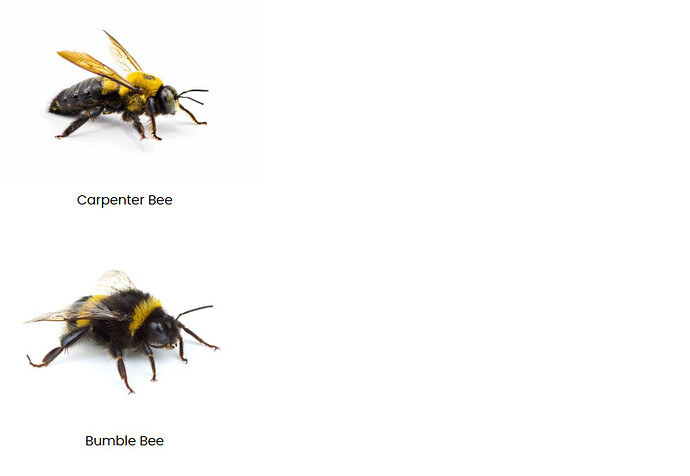I hope it picks up!!
Thanks. Walked around again today and did not see any honeybees but remain hope full.
Thanks for posting the article. I remember a similar incident like that happened in Montana in 2002 with a truckload of honeybees going over a mountain.
Now one other thing I have been watching are the bumblebees since they also pollinate plants. Our barns still have hundreds of them boring holes in the woodwork every spring instead of building a hive that honeybees build.
OK, mark the day June 4th because hundreds perhaps even thousands of honeybees are all over the Dutch Clover in my 1-acre garden and sipping nectar.
We prefer the ‘traditionally created’’ honeybees. Why? Because they have traditionally been around for a long, long, long Time. They have fulfilled their purpose of LIFE for eons of time very well, and very efficiently. Plus, the byproduct of their efforts has been very sweet honey.
Question arises: Why changed a good thing unless you support the goals of Monsanto? So, the real question is why any of should we want to change the real thing for something different?
Sounds too good to be true. Why ‘mess’ with nature? Why not focus on wasps? What do wasps do that is beneficial to us? Well for a start they do fly around collecting spiders and other critters to feed their prodigy.
Real question becomes why ‘mess’ with nature?
Not sure what you mean by “traditionally created”? Do you mean “domesticated”?
My understanding is that a honeybee is a domesticated species, stemming originally from Eurasia/Africa.
Whereas, mason bees have been native to North and South America…, and thus are natural polinators (although not honey producers). Gardeners around our area (and I think also across North America) try to encourage their habitat (providing shelters and mud for them) so that they are around to pollinate flowers and fruit trees, and I’m not sure how one can conclude that that supports Monsanto? They are rather fascinating creatures…
I am friends with a young biology prof’s wife and they now admit that “neonicotinoids” are highly significant in the collapse of monarch butterfly populations. I also know of at least one cardiologist who says gluten intolerance is far less prevalent than people think - he says the symptoms of gluten allergy are actually a reaction to genetically modified wheat and use of glyphosate.
I sat in traffic last year behind a truck with big tanks of clearly labeled glyphosate. It’s a wealthy, formerly big farming area - we still have a local grain elevator. The disconnect between spraying glyphosate on your fields and your daughter-in-law financing an upscale gluten-free bakery is not lost on me. But it is lost on many around here.
Any references available to that cardiologist and his position.
Yes - it’s William Davis, MD, author of Wheat Belly.
If I have misrepresented him in any way, the fault is mine, but I do see him cited as saying “modern wheat is a poison.”
interesting article,
I’ll just add: chemtrails; electromagnetic signals, like wifi, cell phones, and 5G.
Also, exoptic pesticides; which also target humans.
Is the atmosphere being weaponized, against the living?

